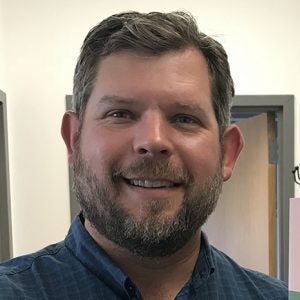Mentor: Geoff Bothun, University of Rhode Island
Project Location
University of Rhode Island-Kingston
Project Description

Consumer plastics breakdown in marine environments over time to yield small microplastics, nanoplastics, and polymer molecules. At each length scale these plastics behave differently within marine ecosystems. For instance, large plastics can be identified visually, removed by hand or via skimming, and are ingested by fish and mammals. In contrast, small plastics are ‘invisible’, cannot be easily removed, and are ingested by zooplankton and microorganisms. A significant barrier to understanding the environmental implication of plastic pollution, and therefore identifying technologies to remediate plastics or develop safe alternatives, is the lack of information on how plastics breakdown in the environment and a lack of suitable materials to test this in the laboratory. Student participating in the project will study the physical and photochemical degradation of commodity plastics – e.g. polystyrene and polyethylene – in seawater. Size fractioned microplastics and nanoplastics will be created by cryogenic ball milling and subjected to simulated weathering and aging. The goal of this work will be to develop a protocol for creating controlled, representative microplastics and nanoplastics for environmental studies that can inform the global plastic pollution community.
Additional Information
- “Can We Turn the Tide on the Problem of Plastics?”, a piece from the URI Magazine, Fall 2020

 RI NSF EPSCoR is supported in part by the U.S. National Science Foundation under EPSCoR Cooperative Agreements #OIA-2433276 and in part by the RI Commerce Corporation via the Science and Technology Advisory Committee [STAC]. Any opinions, findings, conclusions, or recommendations expressed in this material are those of the author(s) and do not necessarily reflect the views of the U.S. National Science Foundation, the RI Commerce Corporation, STAC, our partners or our collaborators.
RI NSF EPSCoR is supported in part by the U.S. National Science Foundation under EPSCoR Cooperative Agreements #OIA-2433276 and in part by the RI Commerce Corporation via the Science and Technology Advisory Committee [STAC]. Any opinions, findings, conclusions, or recommendations expressed in this material are those of the author(s) and do not necessarily reflect the views of the U.S. National Science Foundation, the RI Commerce Corporation, STAC, our partners or our collaborators.